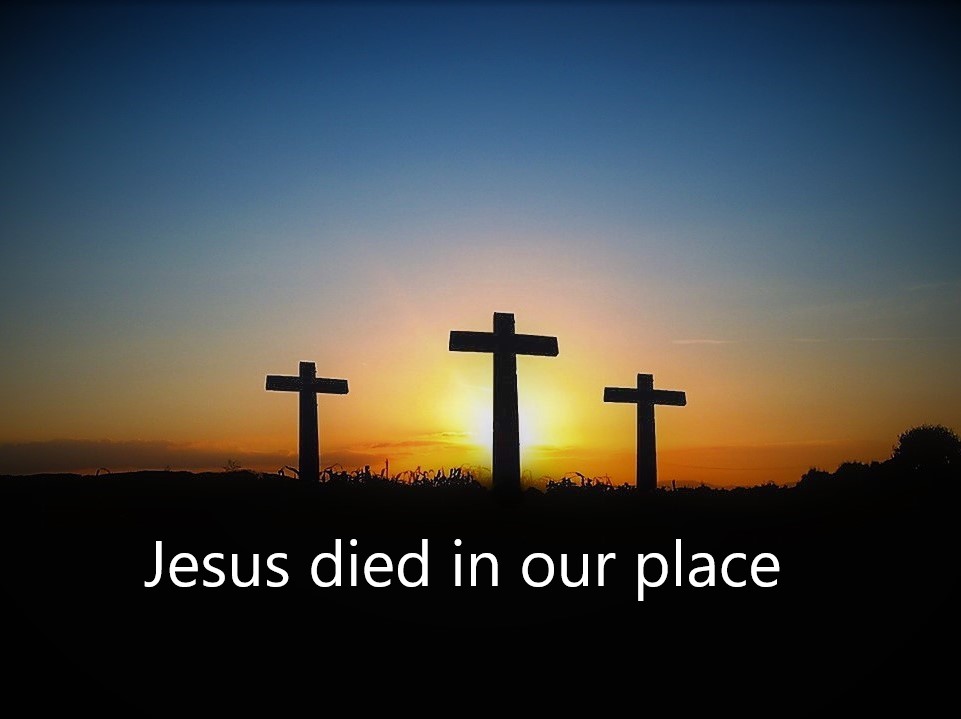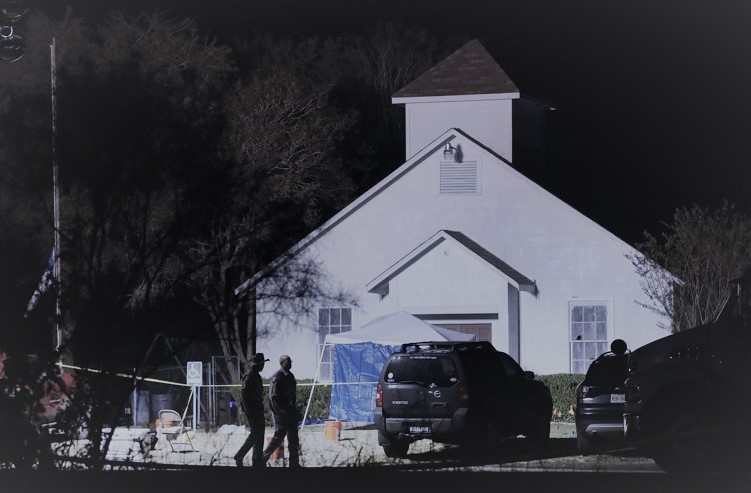 Imagine if you will, a man explaining to his fiancé his vision for their future once they are married.
Imagine if you will, a man explaining to his fiancé his vision for their future once they are married.
Let's carry out this scene a bit further with the prospective bride responding something like this: "Let’s just concentrate on our life now before the wedding; we can talk about our honeymoon and life together after we get married”
Would you think that strange? Why would the future bride not want to talk about life after the wedding ceremony? We would wonder about the lack of excitement.
Is this not what we so often do as the church?
Jesus wants us to know about the future he has planned for us; He revealed many things about the glory ahead for us through His apostles.
Believers, however, remain fixated on what the Bible teaches about this life and spends little time contemplating their glorious future after Jesus appears. The result is an overall lack of excitement regarding Jesus' return.
How did we get here? What are some other causes of the focus on this life versus eternity?
Hollywood
How often have you seen depictions of lonely glorified believers sitting on clouds strumming harps? With such an idea of eternity, it’s no wonder believers lose their eagerness for heaven. Such misinformation dampens our anticipation and understandably so. Who would desire such a lonely and boring existence?
Better to live for the moment than wait for that.
However, Scripture tells us we will reign with Christ in His earthly kingdom and then forevermore throughout eternity. Doesn’t that sound much more exciting than sitting on a cloud?
Hollywood’s lame and misleading depictions of heaven fall far short of the glory ahead for followers of Christ.
I love the movie It’s a Wonderful Life, but someday as followers of Christ we will be so much more than aspiring angels jumping into icy waters to earn our wings. Scripture says we will “judge angels” (1 Cor. 6:3). I am not sure of all that implies, but it certainly distinguishes us from them and places us on a higher level.
Hollywood’s lame and misleading depictions of heaven fall far short of the glory ahead for followers of Christ.
I’ve heard that before
Back in the 1960s’ and 1970’s, eschatology became a hot topic. Many churches emphasized the imminent return of Jesus. I remember Jack Van Impe coming to my church to teach for an entire week about prophecy.
As time has passed, however, believers have lost their expectancy of Jesus’ return. Having looked for it for so long, I understand the sentiment that finds it difficult to believe He will appear anytime soon. After all, we have heard it before for so many years and yet nothing has happened.
However, as we see the prophecy begin to be fulfilled in our world today, if there was ever a time to be watchful, it is now!
When I read the signs of the coming time of tribulation in Matthew 24:3-14, I wonder if Jesus had a laptop in front of him and was reading from various news sites on the Internet as he talked to his disciples. His words in that passage so closely match what we see around us today; it’s difficult to imagine he was talking about a still future period of history.
Silence in Our Churches
Unfortunately, rather than becoming more watchful as signs multiply, churches remain mostly silent on the subject. How can believers be excited about their future hope if they never hear about it?
It’s difficult, if not impossible.
Murky references to eternal life or some distant kingdom do not stir our hearts or relieve anxiety over what we see around us.
Murky references to eternal life or some distant kingdom do not stir our hearts or relieve anxiety over what we see around us. John Eldredge said this in his book Desire, “C.S. Lewis summed it up, ‘We can only hope for what we desire.’ No desire, no hope. . . . Bland assurances of the sweet by-and-by don’t inflame the soul.”[i]
Passing references to heaven do not impassion us, especially in America where so many enjoy comfortable lives. Without a vision of the joys ahead for us after Jesus returns for us, it’s difficult to imagine heaven can be any better than our current existence with IPhones, smart TV’s, computer games, and a host of other things I could list.
Teaching Without a Two-world Perspective
When churches ignore a two-world perspective, they unwittingly make happy marriages, good parenting, wise financial planning, etc., our ultimate hope rather than Jesus’ appearing. Of course, biblically centered teaching on such things is essential. Without a two-world perspective woven into such instruction, however, these things can easily become our hope rather than Jesus’ return.
The danger comes from focusing our hope on temporal results where so many factors, including the sinful choices of ourselves and others, negatively impact the outcomes we so greatly desire. The New Testament teaches believers to expect trials and difficult times in this life (James 1:2-3; 1 Pet. 1:6, 4:12-13).
Scripture promises us paradise in eternity, not now. We set ourselves up for great disappointment when we define anything in this life as our paradise. That is our future, not our present reality.
Hard Pews
Many see eternity as an unending church service as John Eldredge also notes in his book Desire, “Nearly every Christian I have spoken with has some idea of eternity is an unending church service . . . . we have settled on an image of the never-ending sing-along in the sky. . . . And our heart sinks.”[ii]
Of course we will sing and worship the Lord throughout eternity as we get caught up in the glories of eternity and celebrate the full realization of all that He had done for us.
We are promised an amazing future that we can be excited about and celebrate!
Scripture, however, also speaks of our reigning with Christ during the millennium and then forever. We will have thrilling kingdom responsibilities and forever enjoy a restored earth. We will never get bored in eternity with the exciting future the Lord has specifically planned for each one of us.
Satan’s Opposition
Amir Tsarfati recently gave a sermon titled, “Bible Prophecy – God Gave It – Satan Hates It.” Does that not sum up well what we see today with Satan’s ever growing opposition to anything related to our future hope?
Of course, Satan does not want believers to be aware of the glorious future God has planned for them. Why would he want us to anticipate our future immortal bodies when he can drag us into despair over aging, sicknesses, and other aches and pains?
It also makes perfect sense that the devil would distract us from our future hope and bring division into the body of Christ regarding such things.
Bottom Line
God did not reveal so much about our future hope simply for seminary classroom discussions. No, he provided many details of what’s ahead so we as believers can rejoice in our thrilling hope and rise about the anxieties that so often drag us down.
In 1 Corinthians 2:9 Paul writes, “What no eye has seen, nor ear heard, nor the heart of man imagined, what God had prepared for those who love him.’ But the apostle does not stop there, he quickly adds in the following verse, “these things God has revealed to us through the Spirit.”
We have a glorious future beyond what we can imagine. And yet, the Spirit has revealed some things to us. The Lord did not tell us everything about eternity, but He revealed enough to let us know it will be wonderful beyond all we could hope for.
No one will be disappointed with heaven and long to be back on earth. That will never happen; count on it.
[i] Eldredge, John, Desire (Nashville: Thomas Nelson, 2007), pp. 64-65
[ii] Ibid., p. 111














 Do you remember when Joel Osteen’s book, Your Best Life Now, came out? I remember that many pastors criticized its emphasis on this life over eternity.
Do you remember when Joel Osteen’s book, Your Best Life Now, came out? I remember that many pastors criticized its emphasis on this life over eternity. Is there anything around us today that we could describe as “unshakable?” Politicians, movies stars, and leaders continually prove that they are frail human beings just like everyone else.
Is there anything around us today that we could describe as “unshakable?” Politicians, movies stars, and leaders continually prove that they are frail human beings just like everyone else. Thomas Chisholm was born in a log cabin in Franklin, Kentucky in 1866. He became a believer at the age of 27 and a Methodist preacher at the age of 36 despite a lack of formal training for the ministry. Unfortunately, after only a year poor health made it impossible for him to continue as a pastor.
Thomas Chisholm was born in a log cabin in Franklin, Kentucky in 1866. He became a believer at the age of 27 and a Methodist preacher at the age of 36 despite a lack of formal training for the ministry. Unfortunately, after only a year poor health made it impossible for him to continue as a pastor. As I reflect on the Sutherland Springs shooting this past Sunday, the word “brutal” comes to my mind. In 2 Timothy 3:2 the Apostle Paul says that people will become “heartless, unappeasable . . . brutal . . . treacherous, reckless” during the last days. Is this not what we are seeing throughout our world to an ever increasing degree?
As I reflect on the Sutherland Springs shooting this past Sunday, the word “brutal” comes to my mind. In 2 Timothy 3:2 the Apostle Paul says that people will become “heartless, unappeasable . . . brutal . . . treacherous, reckless” during the last days. Is this not what we are seeing throughout our world to an ever increasing degree? During our visit to Savannah, Georgia last year, my wife and I came across a painting, La Parabola, at the Telfair Academy for art. The painting, shown above, depicts the entire life of a woman in two separate panels. I felt a sense of sadness as I initially studied the painting.
During our visit to Savannah, Georgia last year, my wife and I came across a painting, La Parabola, at the Telfair Academy for art. The painting, shown above, depicts the entire life of a woman in two separate panels. I felt a sense of sadness as I initially studied the painting. Obsession. I think that in many ways this describes the day in which we live. People become obsessed with an idea, interest, desire, or emotion and soon it dominates social media and the news as it consumes everyone’s attention. Everyone reading this post likely knows the nature of the current obsession.
Obsession. I think that in many ways this describes the day in which we live. People become obsessed with an idea, interest, desire, or emotion and soon it dominates social media and the news as it consumes everyone’s attention. Everyone reading this post likely knows the nature of the current obsession. Irma Jean Wessels was a friend of my mom while I was growing up in Rockford, Illinois. I had not thought of her for many years until last Sunday when our pastor read Luke 18:28-30 as a part of his sermon. There, in response to Peter pointing out his sacrifice in following the Savior, Jesus responded with these words, “Truly, I say to you, there is no one who has left house or wife or brothers or parents or children, for the sake of the kingdom of God, who will not receive many times more in this time, and in the age to come eternal life.”
Irma Jean Wessels was a friend of my mom while I was growing up in Rockford, Illinois. I had not thought of her for many years until last Sunday when our pastor read Luke 18:28-30 as a part of his sermon. There, in response to Peter pointing out his sacrifice in following the Savior, Jesus responded with these words, “Truly, I say to you, there is no one who has left house or wife or brothers or parents or children, for the sake of the kingdom of God, who will not receive many times more in this time, and in the age to come eternal life.” Imagine the entire state of Texas covered two feet deep with silver dollars. If you have ever spent any time driving in Texas, you realize this is a huge number of coins. In addition, let’s say one of the coins is painted red.
Imagine the entire state of Texas covered two feet deep with silver dollars. If you have ever spent any time driving in Texas, you realize this is a huge number of coins. In addition, let’s say one of the coins is painted red. Imagine if you will, a man explaining to his fiancé his vision for their future once they are married.
Imagine if you will, a man explaining to his fiancé his vision for their future once they are married.